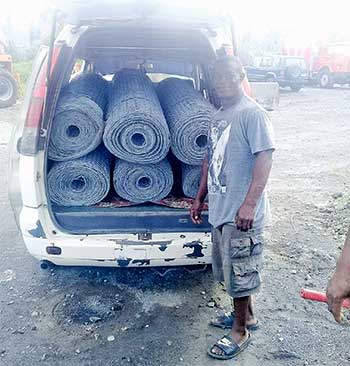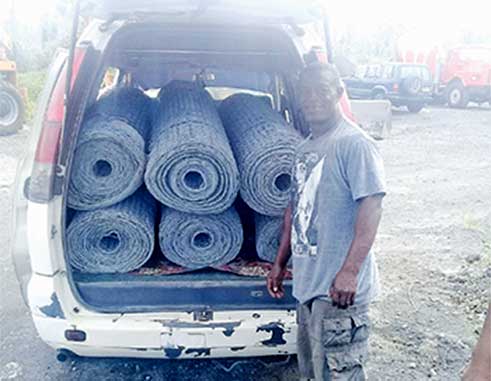THE days of September 18–20, 2017 will remain etched in the annals of hurricane memory across the Caribbean for a long time. While the relief and recovery efforts have been swift, the response will be ongoing and critical across many sectors, especially in Dominica, as it reeled under the full brunt of Hurricane Maria, which smashed into the tiny island as a category 5 monster, packing winds exceeding 250 km per hour.

The Rotary Club of Gros Islet has been integral in the response effort and is committed to working with the Rotary Club of Portsmouth in Dominica to assist in rebuilding and normalizing the lives of people whose livelihoods have been completely torn apart since the passage of the hurricane. The danger is that as time passes, people who were unaffected directly by the disaster will forget that Dominica still needs the collective assistance of the region.
To date, cash and in-kind contributions of up to EC$40,000 have been raised to meet needs on the ground. In the weeks immediately following the disaster, donations came in from far and wide and working with Rotarians in Saint Lucia, the Rotary Club of Regina in Saskatchewan and visiting Rotarian Peter Douch, collected between EC$8,000 and EC$10,000 worth of goods and over EC$5,000 worth of clothing which were and sent to Dominica.
The Black Magic played a critical role in the transshipment of goods from Saint Lucia to Dominica, facilitating the transfer of relief items collected by students from the Dame PearletteLouisy Primary School and other children who themselves receive help from Grow Well, an after-school care centre operating in the north of Saint Lucia, and itself a project of The Rotary Club of Gros Islet for 25 years.
More recently, and recognizing the important contribution of fishing to the economy, Rotarians have concentrated their efforts on making a difference in the fishing community through the financing of wire to the tune of EC$8,000 for the making of fish pots. Dominicans remain proud and resilient, and in the face of their greatest adversity to date, have chosen to stimulate their economy by utilising their homegrown labour to make the pots.





![Simón Bolívar - Liberator of the Americas [Photo credit: Venezuelan Embassy]](https://thevoiceslu.com/wp-content/uploads/2025/12/Simon-Bolivar-feat-2-380x250.jpg)



